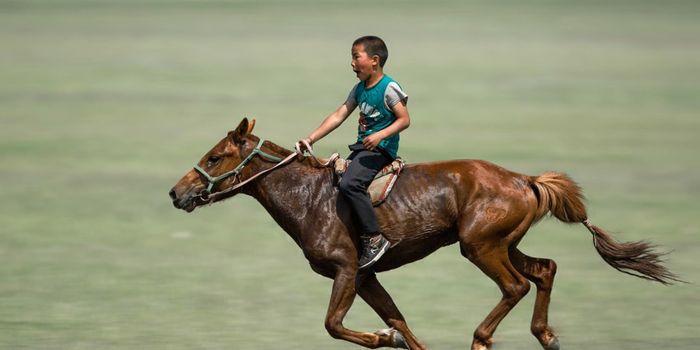Giant Panda Mother is Neglecting One of Her Cubs
It was just a few days ago that it made headlines when Mei Xiang, the giant panda from National Zoo, gave birth to two healthy twin cubs. The event was important because the giant panda is endangered and every successful birth of a newborn cub means we’re one step closer to protecting the species.
Unfortunately, there is some drama as of late. As if these kinds of things could ever just go smoothly.
Mei Xiang appears to be favoring the larger of the two cubs, and putting at risk the health of the smaller cub.
“Mei Xiang has not been a willing participant in the panda team's efforts to switch the cubs since 2 p.m. yesterday afternoon,” the National Zoo said in a public statement. “She has the larger cub in her possession. The panda team is caring for the smaller cub and will continue efforts to swap the cubs about every four hours.”
It may be an animal instinct to ensure that the stronger of the two babies survives, but for whatever reason, Mei Xiang seems to be distancing herself from the smaller cub. Some theories suggest that giant pandas don’t like raising twins and will let one of them die off, as this often happens in the wilderness.
As the National Zoo reports, zookeepers have tried everything, from switching the cubs every four hours to try and trick the mother into thinking she was nurturing the larger one, to nurturing the smaller cub by themselves, but Mei Xiang seems to continue to neglect the smaller of the two cubs.
“However, because the smaller cub has been away from Mei, the panda team is now managing it more intensely,” National Zoo continued. “The little cub's behaviors are good. The team is concerned about its fluctuating weight since the cub is now more than 48 hours old. The most important thing for the panda team is to help the cub get enough fluids and nutrients. To accomplish this, they are bottle and tube feeding the cub.”
As a result of lacking the mother’s care, the smaller cub is losing weight and regurgitating what food the zookeepers can get into its tiny stomach. The cub is being fed by way of bottles and tubes in an attempt to keep it alive during the highly vulnerable infancy stages, while antibiotics are preventing potentially lethal infections and constant hydration prevent dehydration.
As for the larger of the two cubs, Mei Xiang appears to be taking excellent care of it and it appears to be perfectly fine.
Our thoughts and wishes go out to the smaller of the two cubs in the hopes that it can survive and grow.
Source: National Zoo









